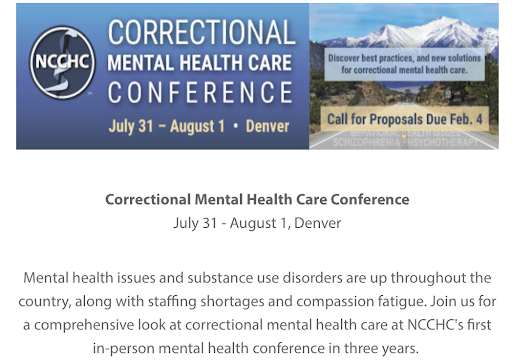
We’ve compiled top highlights from recent news, research, and resources across the world for our latest IACFP International News summary. Our topics for January and February, 2022 include: IACFP updates, emerging research, policy updates, practice highlights, and upcoming conferences.
1. IACFP Updates
- New Editor-in-Chief for Criminal Justice and Behavior
The IACFP Board is pleased to announce that they recently selected Mark Olver, Ph.D., as the editor-in-chief of Criminal Justice and Behavior, effective January 1, 2022. Dr. Olver has been an associate editor for CJB the last four years. He is a registered doctoral psychologist with the Saskatchewan College of Psychologists and a professor at the University of Saskatchewan. Dr. Olver follows Dr. Robert Morgan, who served as editor-in-chief of CJB from 2018-2021. - New IACFP President-Elect
The members of IACFP have elected Melvin Hinton, Psy.D., as the next President-Elect of the Association. Dr. Hinton has served on the board for four years. He is a licensed Clinical Psychologist and is currently the Chief of Mental Health Management Services for the Illinois Department of Corrections. Dr. Hinton will become President of IACFP in January 2023.
2. Research
- “Combining Static and Dynamic Recidivism Risk Information Into the Five-Level Risk and Needs System—A New Zealand Example”
This article is included in Criminal Justice and Behavior, Volume 49, Number 1, January 2022. The authors—Darcy J. Coulter, Caleb D. Lloyd and Ralph C. Serin—incorporated dynamic risk scores that case managers rated among a routine sample of adults on parole in New Zealand with static risk scores into the Five-Level Risk and Needs System proposed by the Council of State Governments Justice Center.
The results of the study may be most useful to those who are developing recidivism risk assessment tools and to those who are using multiple tools designed for different purposes. In their conclusion they write, “The current task for the field is to continually refine how to combine risk information in theoretically and practically meaningful ways.” - Criminological Highlights, Volume 19, Number 6, December 2021
Criminological Highlights is published by the University of Toronto, Centre for Criminology and Sociolegal Studies. This issue addresses the following questions:
- How does the police use of social media affect our understanding of controversial police actions?
- Why do we need to look at police activities to understand the over-representation of Indigenous people in Canada’s prisons?
- How is the use of algorithms for routine police and court decisions being received?
- Is solitary confinement harmful to prisoners?
- Does imprisoning those convicted of drinking-driving offenses deter them?
- How do body-work cameras affect police interactions with citizens?
- Do people want different responses for Black and White people found to be using illegal psychoactive drugs?
- Does being exonerated for a crime mean that the stigma of a conviction disappears?
3. Policy
- Prisoners in 2020 – Statistical Tables
In December 2021, the U.S. Bureau of Justice Statistics released “Prisoners in 2020 – Statistical Tables.” The publication notes a 7-31% decrease in federal and state correctional institutions, with the exception of the state of Alaska. The report notes, “The COVID-19 pandemic was largely responsible for the decline in prisoners under state and federal correctional authority. Courts significantly altered operations for part or all of 2020, leading to delays in trials and/or sentencing of persons, and this was reflected in the 40% decrease in admissions to state and federal prison from 2019.” The declines reflected policy decisions made to mitigate the impact of COVID-19 on correctional systems. - “New data: The changes in prisons, jails, probation, and parole in the first year of the pandemic”
The Public Policy Initiative notes that the data released by BJS during January 2022 reflects how quickly policy decisions can be made under pressure. They also noted that the policy decisions had unintended negative consequences and that many have already reverted to prior policies. As new variants are spreading throughout the world, perhaps it is time for sustainable policy changes that reflect a concern for public (and prisoner) health and safety.
4. Practice
- Smart Decarceration Project
Researchers at the University of Chicago Crown Family School of Social Work, Policy, and Practice have launched a two-year project to study prosecutor-led gun diversion programs (PLGDP). Funded by the Joyce Foundation, the project launched September 1, 2021 and will conclude in 2023.
The Smart Decarceration Project; the Crown Family School of Social Work, Policy and Practice; and the University of Chicago recently published Principles of Prosecutor-Led Gun Diversion Programming—The National Landscape and Current Trends. It identified four common program models in eight prosecutor-led diversion programs (i.e., cognitive-behavioral, life skills and anger management training, service and resource provision, and restorative justice circles).
Given current increases in violence, and gun violence in particular, this research and examination of policies and practices will be particularly beneficial to many stakeholders and readers of the IACFP Bulletin.
5. Upcoming Conferences
- IAFMHS Conference, June 14-16, 2022
This in-person conference will be held in Berlin, Germany on June 14-16. Proposals for conference presentations must be submitted by 14 February 2022.
For more information, visit www.iafmhs.org or click here.
- NCCHC Correctional Mental Health Care Conference, July 31-August 1, 2022
Mental health issues and substance use disorders are up throughout the country, along with staffing shortages and compassion fatigue. Join NCCHC for a comprehensive look at correctional mental health care at their first in-person conference in three years.
For more information, visit www.ncchc.org or click here.



